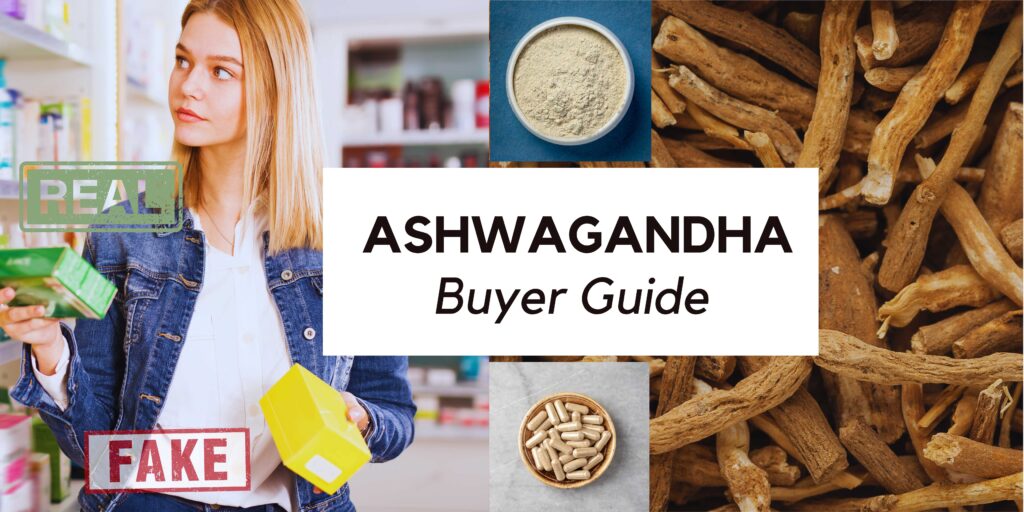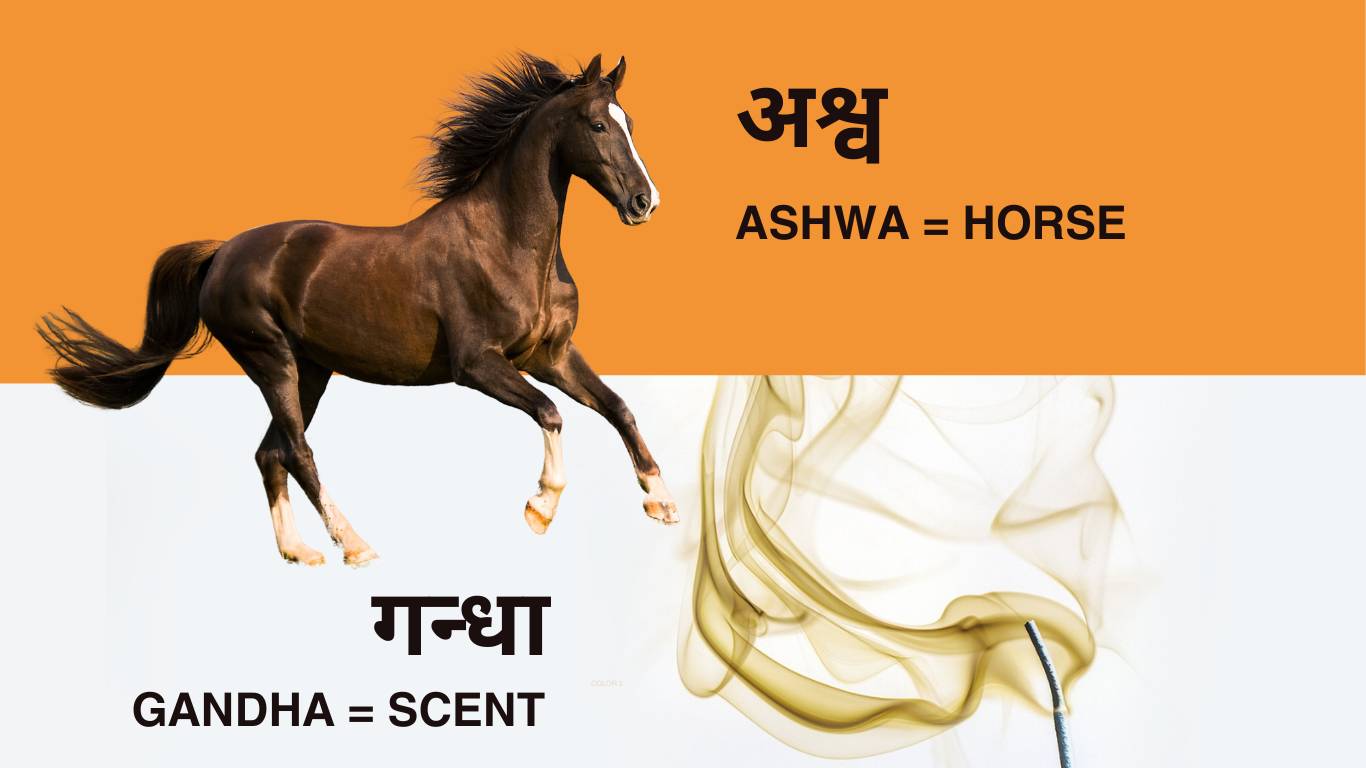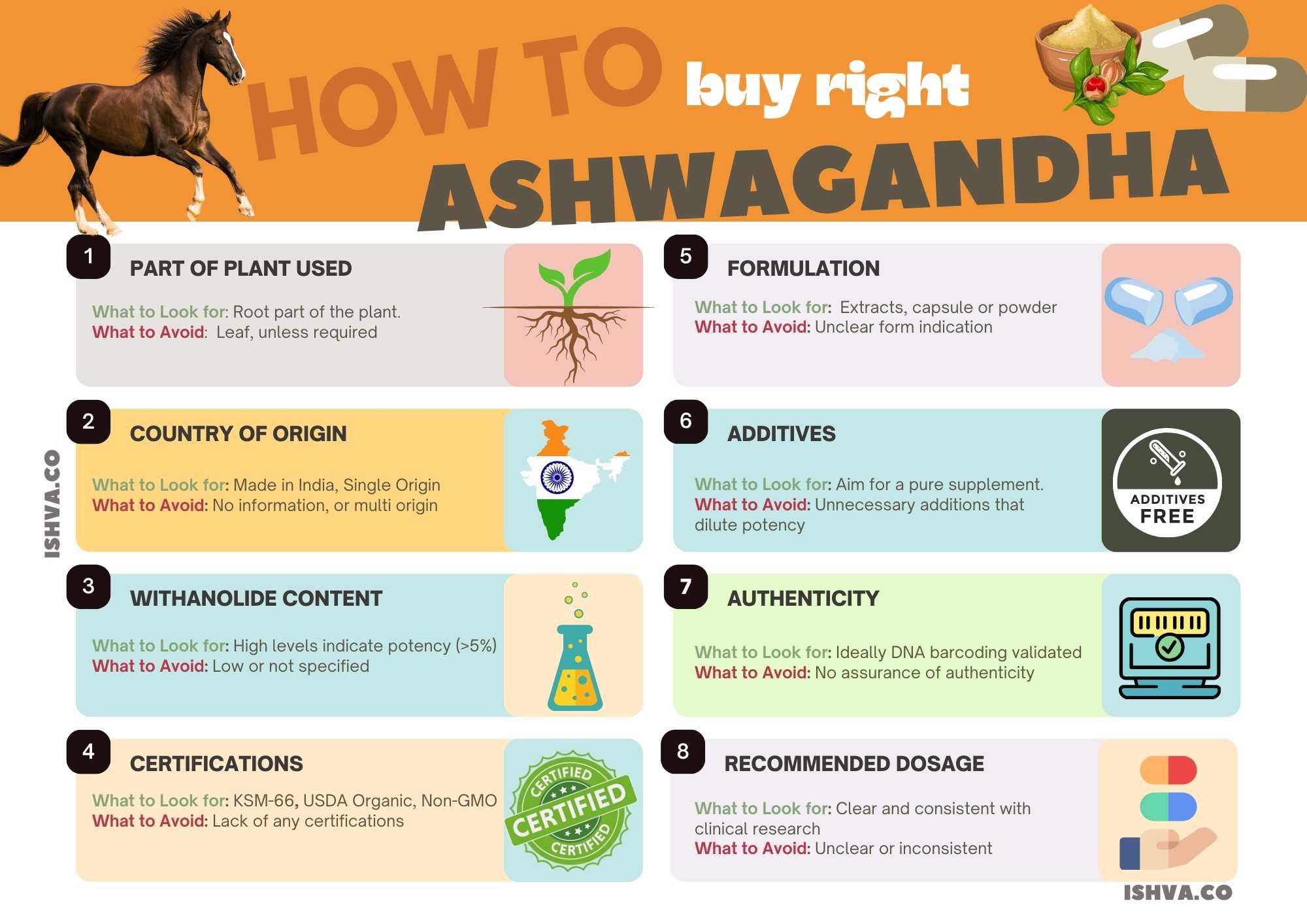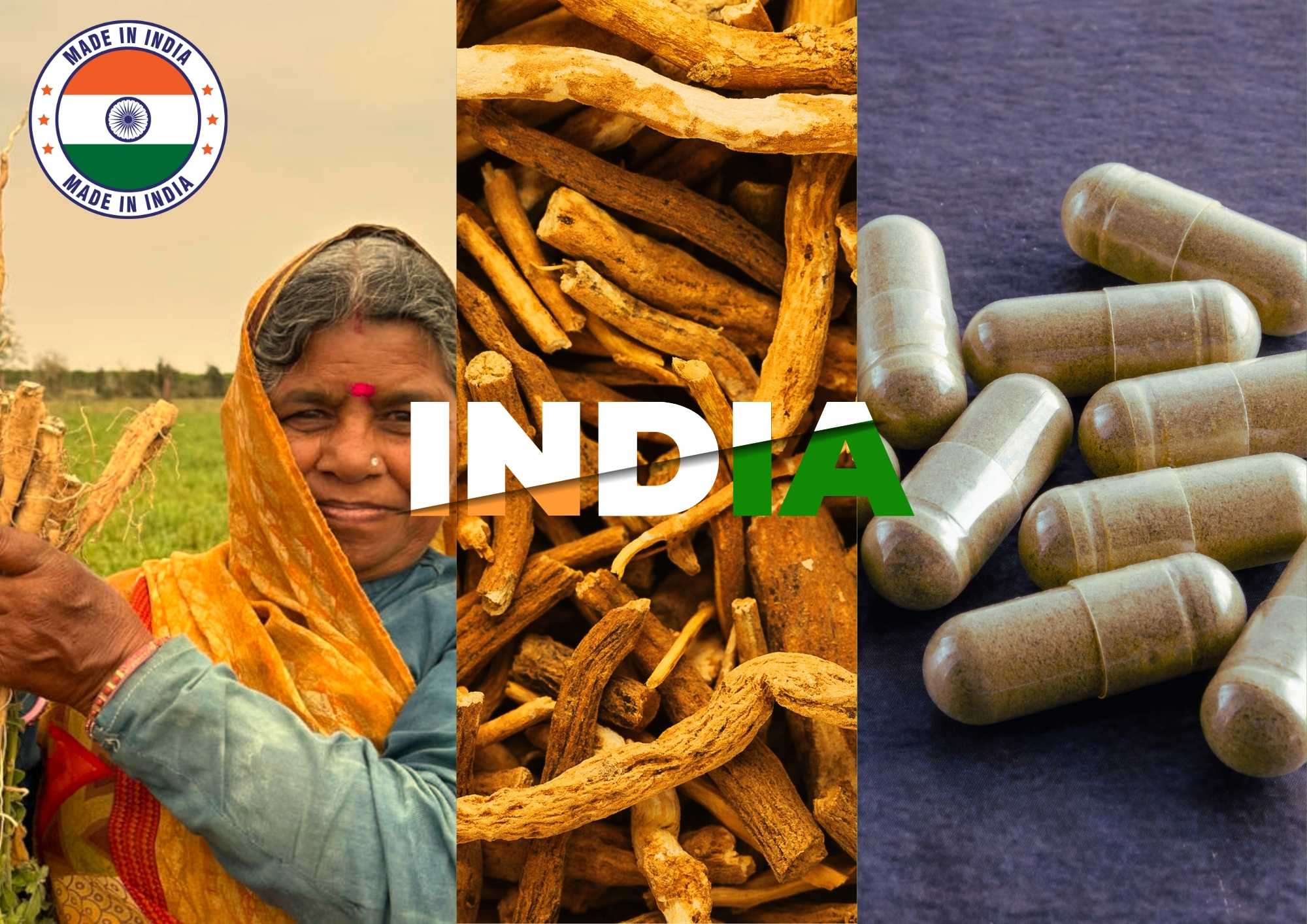How to Buy Ashwagandha in 2024 : A Thoughtful Guide

If you’re wondering where to buy Ashwagandha, you’re not alone. With its rise in popularity, the market is flooded with options, and not all are pure or potent. That’s why I’ve put together a guide to help you find real Ashwagandha.
This guide will give you the background of this incredible root, its benefits, and how to pick the best one. We’ll also tackle how to spot the fakes. And, I’ll highlight my favorite picks made right in India.
But first, a little background information on why you can safely trust this guide.
My Personal Connection to Ashwagandha
Growing up in India, Ashwagandha was both familiar and foreign to me, a staple in my grandparents’ lives but not in mine. Years later, it transformed my life as a grown up.
Moving to London from India was my big dream. But life here got super busy. I often felt lost and worn out, even with my regular workouts. Far from my comfort zone, the struggle with work priorities and decision fatigue became all too real. It was endless, and I felt lost.
Then one day, my mom, from back home, said, “Try Ashwagandha.” At first, I wasn’t sure, but I decided to give it a go.
And boy, does it work.
Ashwagandha brought balance to my busy days. Over time, I’ve grown to deeply value this powerful herb, an unmistakable part of my Indian heritage. That’s why I’ve immersed myself in exploring how to buy Ashwagandha, consulting experts, reviewing studies, and using it daily for the past two years.
What is Ashwagandha?
The term “Ashwagandha” derives from Sanskrit, combining “Ashwa” for “horse” and “Gandha” for “smell,” (or scent) essentially meaning “the scent of a horse.” This name playfully hints at the herb’s robust aroma resembling that of a horse’s sweat, believed in Ayurvedic tradition to confer the animal’s vigor and vitality to those who consume it.
Scientifically, Ashwagandha root is known as Withania Somnifera and regionally as Indian Ginseng or Winter Cherry. The guardian herb is a cornerstone of Ayurvedic medicine, dating back to well over 6,000 years in India.
Ayurvedic practioners in India classify it as a Rasayana (Rejuvinator) which refers to herbal or metallic preparations aimed at promoting a youthful state, expanding happiness. Ashwagandha is a “Sattvic Kapha Rasayana” herb, renowned for its adaptogenic qualities.
Adaptogen equals anti-stress.
This makes Ashwagandha root a vital tonic for all ages, but especially childern and geriatrics, aiding in stress management and longevity. No wonder, it holds a special place in the holistic wellness traditions of India.
Where is real Ashwagandha from?
Cultivation of Ashwagandha has been a longstanding tradition in India, with records of its use dating back thousands of years in Ayurvedic texts. Discovering the origins of genuine Ashwagandha is crucial in understanding how to buy Ashwagandha. This revered herb is deeply rooted in the rich soils of India.
Thriving in the subtropical climates, real Ashwagandha is predominantly cultivated in the dry regions of northwestern India, including Maharashtra, Gujarat, Rajasthan, and extending to the higher altitudes of Punjab and Himachal Pradesh, up to 5000 feet.
The traditional practice involves farmers carefully harvesting the Ashwagandha roots after 150 days of growth, a period when the roots are believed to be at their maximum strength and efficacy. These potent roots are then meticulously dried and prepared into various forms, such as powders and capsules.
How Ashwagandha benefits your body
Learning how to buy Ashwagandha involves recognising this herbal powerhouse for what it truly is: a natural pharmacy within a single plant. At the heart of Ashwagandha’s power are its biologically active constituents: alkaloids, steroidal lactones, and saponins. These compounds are the heroes behind its stress-combating and immune-boosting abilities. So, what is Ashwagandha best for?
Adaptogenic and Anti-stress Effects
Ashwagandha is well known for its ability to fight stress. It’s as effective as famous herbs like Siberian Ginseng and Panax Ginseng. For example, studies show that mice given Ashwagandha could swim twice as long as those that weren’t. This proves its strength in boosting stamina and managing stress. Another interesting find is that Ashwagandha can increase stress-fighting hormones in rats. This makes them better at handling cold and swimming stress.
Protecting the Brain
Ashwagandha also offers hope for brain health. It has been studied in diseases like Alzheimer’s, Parkinson’s, and Huntington’s. Compounds in Ashwagandha, like withanoside IV, can help repair brain cells. This could mean it can slow down or even reverse some brain diseases. In models of Alzheimer’s disease, Ashwagandha helped improve memory. This suggests it could be a helpful treatment for such conditions.
Fighting Cancer
Ashwagandha’s role in fighting cancer is promising. It can stop cancer cells from growing and attaching to healthy cells. In mice, it prevented lung tumors caused by certain chemicals. This shows Ashwagandha might help in preventing cancer and could also make chemotherapy more effective and less harmful.
Easing Anxiety and Depression
Studies suggest Ashwagandha can help with anxiety and depression. It works as well as some prescription drugs but is natural. For instance, it can reduce anxiety in the same way as Lorazepam, a common anxiety medication. Ashwagandha also has effects similar to the antidepressant Imipramine. This makes it a potential natural treatment for mood disorders.
Boosting Immunity and Reducing Inflammation
Ashwagandha can strengthen the immune system. It has antioxidant properties that protect cells from damage. It also fights inflammation, which is at the root of many chronic diseases. Withaferin A, a compound in Ashwagandha, is especially good at reducing inflammation.
How to Buy Ashwagandha Right
It’s genuine, honours tradition, and boosts health. When you choose Indian Ashwagandha, you stick with tradition. It guarantees the herb’s full benefits. Honest brands source and buy Ashwagandha from suppliers that are indigenous. This choice supports authenticity and sustainability. Indian Ashwagandha stays true to its Ayurvedic roots.
They also help local farmers whose farming practices from thousands of years ago bring out Ashwagandha’s best health properties and bioavailability. Picking the right Ashwagandha from India means you value realness, top quality, and holistic health ideas. It shows you care about India’s botanical legacy. When you buy Ashwagandha that’s native, you are rewarded by this potent herb’s true and powerful benefits.
Buy Ashwagandha with Root Extract KSM-66
Before delving into KSM-66, it’s crucial to understand what an Ashwagandha extract is. Extracts concentrate the active compounds from the Ashwagandha roots, enhancing their therapeutic potency. They’re vital for ensuring you get a consistent and powerful dose of the herb’s benefits. When looking to buy Ashwagandha root products, always look for KSM-66. KSM-66, a high-concentration Ashwagandha root extract, guarantees the herb’s therapeutic benefits by concentrating its active compounds. Its superiority lies in its ability to deliver consistent and potent doses of Ashwagandha root.
Check out this great video on how KSM-66 is made.
Here are the main benefits of KSM-66:
- High Concentration: KSM-66 leads in concentration, enhancing absorption and effectiveness.
- Research-Backed: The most studied Ashwagandha extract, KSM-66’s benefits are science-supported.
- Potent Withanolide Content: Over 5% withanolides ensure its high potency when you buy Ashwagandha root extract like KSM-66.
- Quality and Value: From farm to lab, its production ensures top quality at great value.
- Certified Excellence: With USDA Organic and Non-GMO labels, it’s a trusted choice to buy Ashwagandha root extract.
- Eco-Friendly: Made using a green, solvent-free process, it’s safe and sustainable.
- Indian Origin: KSM-66 is deeply connected to its Indian origins, made by Ixoreal Biomed, which spent over a decade perfecting the extraction process.
FAQ
What is Ashwagandha?
Ashwagandha, known as Withania Somnifera or Indian Ginseng, is a cornerstone herb in Ayurveda, celebrated for over 6,000 years for its rejuvenating and stress-relieving properties.
Why buy Ashwagandha root extract?
Ashwagandha root extract, especially in concentrated forms like KSM-66, offers potent adaptogenic benefits, enhancing stress resistance, cognitive function, and overall well-being.
How do I choose the best Ashwagandha supplement?
Look for products with Indian provenance, specific product formulations, reputable brands, certification (USDA Organic, Non-GMO), high withanolide content, and positive customer reviews.
Where does real Ashwagandha come from?
Real Ashwagandha is traditionally grown in the subtropical regions of India, where it’s cultivated for its roots, believed to be at their peak potency after 150 days of growth.
What is KSM-66 Ashwagandha, and why should I consider it?
KSM-66 is a high-concentration, full-spectrum Ashwagandha root extract known for its high bioavailability and efficacy, backed by extensive research and certifications.
How does Ashwagandha benefit the body?
Ashwagandha supports stress relief, immune function, brain health, and may have anti-cancer properties. It’s an adaptogen that helps balance the body’s response to stress.
Are there any specific certifications I should look for when buying Ashwagandha?
Yes, certifications such as USDA Organic, Non-GMO, and others are indicators of quality, safety, and organic farming practices.
Can Ashwagandha be taken in any form?
While Ashwagandha is available in various forms, capsules or powders, especially those using root extract like KSM-66, are preferred for their potency and ease of use.
What should I avoid when buying Ashwagandha?
Avoid products with generic or unclear labeling, unknown brands, low withanolide content, unnecessary additives, and those lacking proper certifications or validation.
How can I verify the authenticity of Ashwagandha products?
DNA barcoding validation and purchasing from reputable sources with transparent sourcing and manufacturing practices are reliable ways to ensure the product’s authenticity.
Conclusion
And there you have it, my journey through the world of Ashwagandha, a tiny herb with a mighty promise. In my next piece, I’m going to write about my top picks for where to buy Ashwagandha. But here’s the thing—I want to make sure it’s as useful to you as it can be.
If you found this post helpful, drop a comment below with any specific questions you’ve got or even just to let me know where you’re tuning in from. Are you looking for the most sustainable option? The best value for money? Or maybe a brand that supports local communities? Whatever it is, I’m all ears. Here’s to wellness, community, and making choices that feel right!




